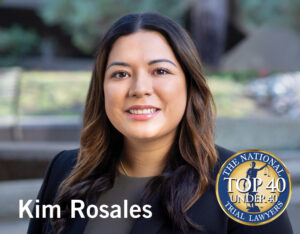Pharmacy or pharmaceutical company not providing Medicare with best price on drugs.
Often drug companies violate the False Claims Act when they fail to give the government the manufacturer’s “best price” on medications, that is, the lowest price paid by any private commercial customer. For example, the Medicaid Drug Rebate Program requires name-brand drug manufacturers to specify the “best price” given to private commercial customers.
Drug makers pay rebates to state Medicaid programs anytime the government has paid more for medications than the “best price.” The practice works to guarantee that Medicaid programs are offered the same deep discounts enjoyed by large commercial customers. When pharmaceutical companies neglect to reveal the lowest price for their products, they violate the False Claims Act.
Best price violations result in significant damages
Best price violations can result in very significant damages to the government in overpayments, and some major pharmaceutical companies have been involved in False Claims Act lawsuits because of such violations.
Examples of best price violations include the following:
- In 2009, the U.S. and several states filed False Claims Act suits against Wyeth, alleging that the drug maker intentionally overcharged the government by hundreds of millions of dollars for Protonix Oral and Protonix IV prescribed under state Medicaid programs that ensure health insurance for the poor.
- Under the Medicaid Drug Rebate Program, name-brand drug manufacturers are required to reveal the “best price” offered to private customers. If the state Medicaid program paid more than this “best price,” the manufacturers are then required to pay rebates to the state Medicaid programs so that the government pays no more for drugs than the best price given to large commercial customers.
- From 2000 to 2006, Wyeth had arranged with hospitals to offer large discounts when Protonix Oral and Protonix IV were purchased together. Facilities that put both medications on their drug lists and that met or exceeded required market-share goals were given prices reduced 80 and 90% from the list price.
- The suits against Wyeth allege that the company failed to determine the effective “best price” paid by hospitals and that the deeply discounted prices were not offered to state Medicaid programs. By not calculating and revealing the best price given to hospitals for this drug combination, Wyeth escaped making enormous quarterly rebates to state Medicaid programs.
- Also in 2009, Aventis Pharmaceutical Inc. paid a substantial amount after admitting that it violated the False Claims Act by over-billing federal and state health programs for medications administered to indigent patients. As part of the Medicaid Drug Rebate Program, Aventis had an obligation to report the lowest price paid for its drugs by large commercial customers and to make rebates to state Medicaid programs based on that price.
- Rather than meet its obligations under the Medicaid Drug Rebate Program, Aventis intentionally misrepresented its lowest prices, underpaid rebates owed to the states, and over-billed a number of other public health agencies. The medications at issue included Nasacort, Nasacort AQ, and Azmacort, which are all steroidal anti-inflammatory nasal sprays. Aventis’ fraudulent conduct continued from 1995 to 2000.
- In 2008, Boehringer Ingelheim Roxane Inc., the Ohio pharmaceutical giant, settled False Claims Act litigation in Boston federal court by consenting to pay a sizable amount to resolve charges that the company falsely inflated drug prices reported to nationwide price reporting services.
- This price inflation to national price reporting services — engaged in by a number of drug makers — caused a substantial overcharge to the Massachusetts Medicaid program (and private medical insurance plans) because the state’s Medicaid system uses the prices published by nationwide drug-price reporting services to establish the amount the Massachusetts program will pay to pharmacies as reimbursement for medications prescribed to state Medicaid patients.
Medicaid Drug Rebate Program is a huge financial incentive
Because of the Medicaid Drug Rebate Program, pharmaceutical companies have a huge financial incentive to hide the best price they give to commercial customers. Concealing this information is a violation of the False Claims Act, however, and costs taxpayers billions of dollars.





